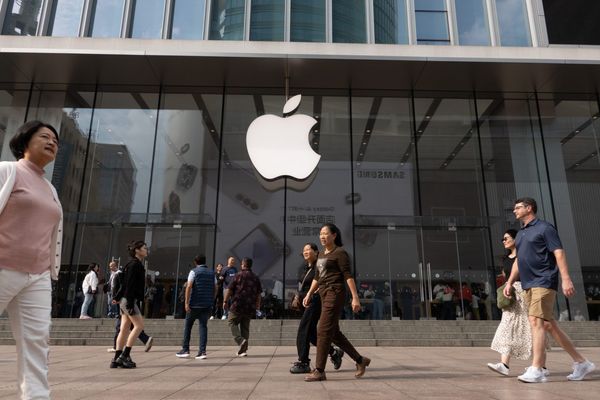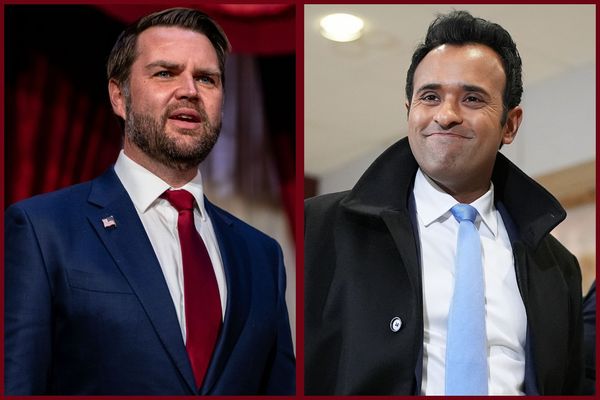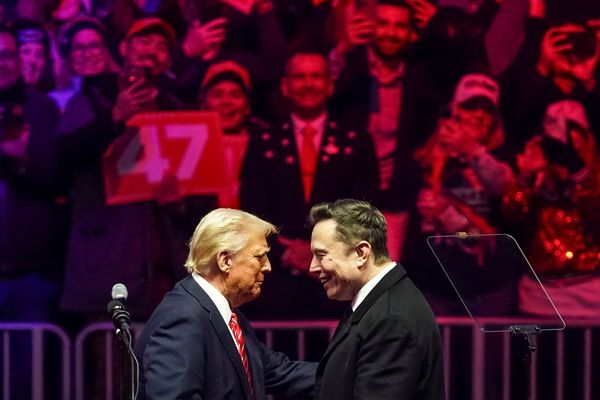
Last year, one thing became very clear: Most people are unhappy with today’s leaders.
In a year that saw more than 60 national elections worldwide, incumbents either lost their seats or lost ground in nearly every race. (Welcome back, President Trump.)
Trust in our institutions is down across the board. In the latest Edelman Trust Barometer, a well-respected global survey, disturbingly large numbers of people say there’s no one they trust anymore: not the media, corporations, governments, nor NGOs. And they certainly don’t trust CEOs.
When there’s no trust, there’s no hope. And when there’s no hope, innovation and progress get stifled. So it’s no surprise that more people are looking to leaders who will shake things up.
In Washington, Trump is empowering some of the most influential people in Silicon Valley to rethink the government’s staffing, processes, and spending. He’s tapped Elon Musk and Vivek Ramaswamy to run a new organization, the Department of Government Efficiency, or DOGE (a name that puns on Dogecoin, the cryptocurrency that Musk loves). You can read about Musk’s efficiency playbook, DOGE’s leaders, and the obstacles they face in "Is DOGE even doable? Elon Musk’s plan to cut as much as $2 trillion in federal spending will be harder than it sounds."
New leaders are also getting ready to overhaul some iconic Fortune 500 companies. At Nike, Elliott Hill was tapped to come back from retirement after a doozy of a year for the sneaker and sportswear brand. Hill, a company lifer, began his career as an intern at Nike 36 years ago. At least one supportive Nike exec says he has already gained the trust of his workforce. “He’s the refounder,” says John Hoke, the company’s chief of innovation. And Nico Harrison, general manager of the NBA’s Dallas Mavericks, told writer Devin Gordon that “the first thing that [Hill] has to do, he’s already done— he’s energized the base.” (See "Nike is broken. Can Elliott Hill fix it?")
Within Berkshire Hathaway, the most hotly anticipated succession plan since Tim Cook followed Apple’s Steve Jobs is underway. Warren Buffett said in 2021 that Greg Abel, a 25-year veteran of Berkshire Hathaway, would be his heir apparent. Nearly four years later, many fans of the legendary 94-year-old investor are wondering how the “new guy” will do.
Abel has largely stayed under the radar, but Fortune’s Shawn Tully spent months digging inside and outside the company to assemble a great story about Abel’s impressive rise, in the first-ever major profile of the future Berkshire leader (see "Meet the man picked to succeed Warren Buffett.")
Both Abel and Hill have strong traditions to build on. Our 27th edition of the World’s Most Admired Companies list, honoring those that are deeply respected by their peers and even their competitors, starts on page 77; Nike and Berkshire have been Most Admired “All-Stars” 17 times and 27 times, respectively.
At Fortune, rebuilding trust is also foremost on our minds. We know the world is more skeptical than ever of journalists. We also know that the world needs trusted sources of information more than ever. And we hope that every time you read us, you feel we are just that.
Please reach out if you have ideas about how we can better serve you. And thanks, as always, for putting your trust in Fortune’s journalism.
This article appears in the February/March 2025 issue of Fortune with the headline: "Fighting a global trust crisis."










